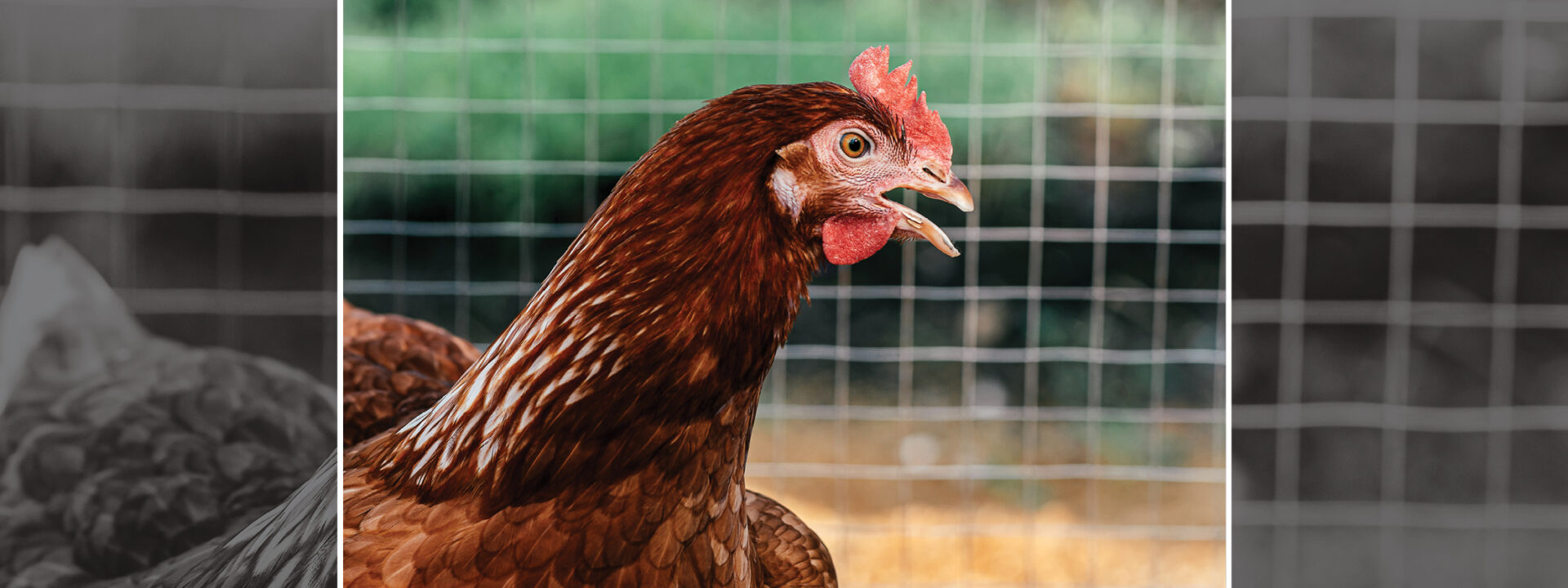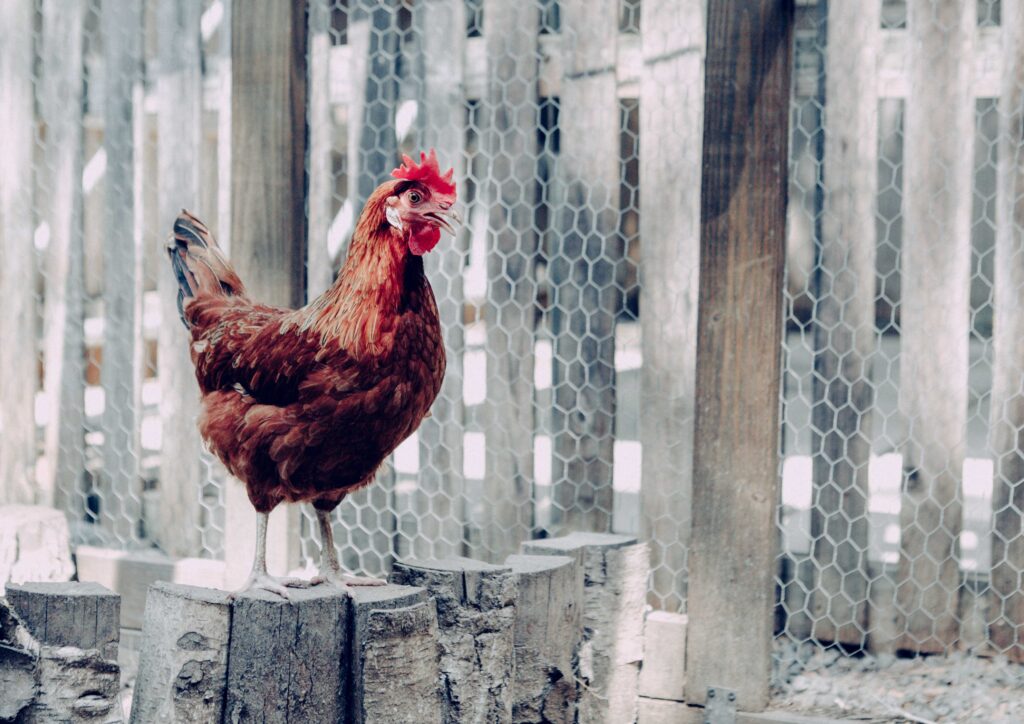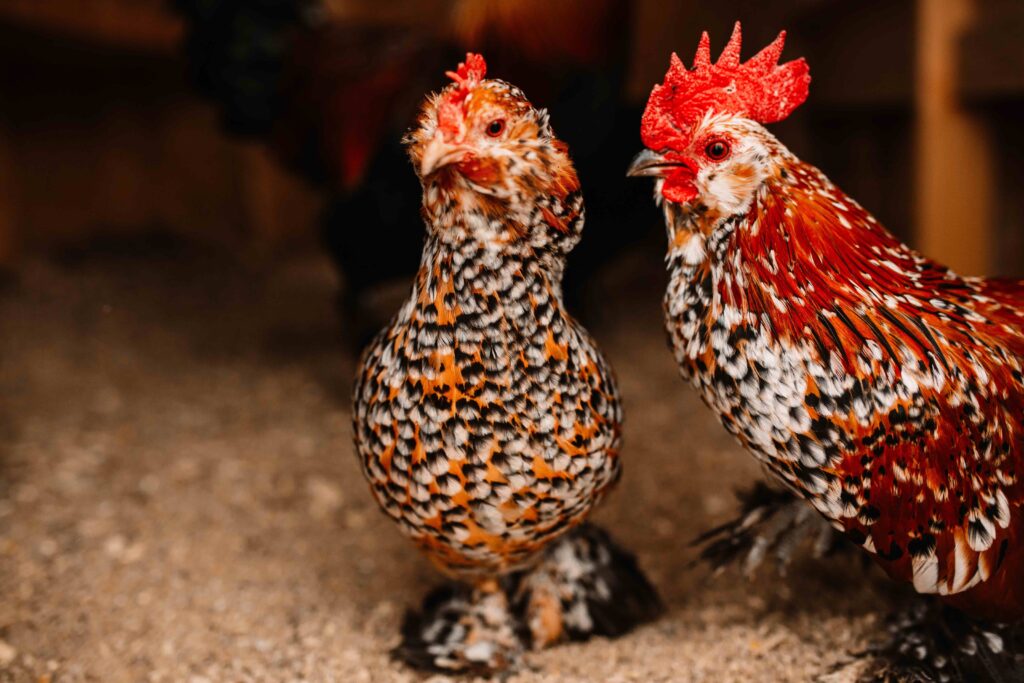Hamilton is chickening out on backyard fowl

It may be illegal to keep hens and roosters within the city limits of Hamilton, but backyard chickens are a great addition to urban life.
Driving through the tony neighbourhood of Kirkendall South a few years ago, you might have been surprised to see an escape artist chicken nibbling on someone’s priceless peonies, or to look over a fence to see giggling kids bouncing on a trampoline with a few hens, or running them through a chicken obstacle course.
Not your typical urban scene, and indeed it’s technically illegal inside the city limits in Hamilton, but Joanne was not the only person I know who kept chickens.
“Someone has lost a chicken on Napier Street,” announced another friend who had spotted it while riding his bike to work through Strathcona one morning.
The chickens, they are among us.
Why on earth, though, would someone want to keep a noisy, smelly livestock animal in their backyard in a busy urban area?
Indeed, those were the concerns raised when the idea of a backyard chicken pilot came to the City of Hamilton’s planning committee in 2020. Members of the committee voted to reject the idea and not even send it to staff for study, in a move that echoed decisions in 2018 and 2012.
It comes down to the type of animals we allow to live among us, says David Waltner-Toews in his book A Conspiracy of Chickens. In an interview about his book on my radio show in December, he talked about how the animals we allow to live with us in a city is a question of what we value. “Sometimes we make a conscious choice, sometimes we inherit a choice. In agriculture, we’ve inherited cattle and pigs and chickens. In cities it tends to be cats and dogs.”
We have made a conscious choice to allow cats and dogs to live among us, so who’s to say we can’t choose chickens as well?
Besides, they’re not that smelly.

“Chicken poop is really dry,” explains Joanne (HCM is withholding her last name). In the winter, she would keep the whole coop enclosed in a vapour barrier, and in the spring she cleaned out the bedding and mixed it into her garden bed. At the same time, the chickens would scratch for the grubs and insects that lowered yields from her garden.
The waste from the chickens went to feed the vegetables that then fed her family in the summer and fall. From there, the virtuous circle continued with veggie scraps going back to the chickens. “Whatever leftovers that were vegetarian, we’d just throw them into the chicken coop and the cycle would go on.”
Her chickens, and her backyard, soon became a hub of sorts for her neighbours on all sides. “Some days I’d go outside and there were random children in the yard, just playing with chickens.”
The neighbours also appreciated their morning announcement that it was time to get going. Hens don’t crow the way roosters do, but they cluck when they lay an egg each morning. Joanne’s hens were quite modest, but Waltner-Toews describes one as announcing: “‘I laid an egg I laid an egg.’ She would go on forever.”
Joanne and Waltner-Toews both say their neighbours told them they appreciated the sound in the mornings. One of Joanne’s neighbours grew up on a farm and had pleasant memories attached to the sound, and others were just happy to know it was time to start the day.
Joanne’s experiment in hen-keeping ended suddenly when the raccoons figured out a way to get into her carefully constructed coop. They made off with four the first time, and then two more a couple of weeks later. At that point she threw in the towel.
This still leaves the question, what about eggs? Waltner-Toews describes his egg harvest as “slightly cheaper eggs than the grocery store,” but Joanne found it very inexpensive. Her first coop was a second-hand score from a friend, and a bag of organic chicken feed that lasted three months or more would only cost $30 or so.
And the reward? An egg per chicken per day for most of the year, except in the dead of winter when most hens stop laying.
If that sounds like a lot of eggs, in Joanne’s house they went to good use. “We eat a lot of eggs. There’s five of us, and my daughter is vegetarian but loves her eggs, and my son … he eats a lot, he’s a football player. Plus you do some baking …”
And, of course, could a few eggs now and then to your neighbours be considered the backyard chicken equivalent of hush money? You see, while chickens are illegal in Hamilton, the bylaw is only enforced on a complaint basis. As with all things, if you know your neighbours, and get along well with them, you might get lucky and evade being reported.
Unless your chickens escape.
“They will escape if you don’t keep an eye on them. They’ll take themselves for a walk and go for a wander,” says Joanne. Likely also the problem with the chicken keeper in Strathcona whose charge my friend rode by on his bike that morning.
Joanne would find them on fences, and would regularly have to go into her neighbours’ yards to recapture her hens.
All of this feathery skullduggery wouldn’t be necessary if we would just legalize them. They’re legal in all sorts of places around us, including Brantford, Niagara Falls, Guelph, Kitchener and Newmarket. The usual complaints about noise and smell are easily disproved. Waltner-Toews – who is a renowned veterinary epidemiologist – has even volunteered to come to a Hamilton city council meeting and provide expert testimony on the benefits and low risk of urban chickens.

His backyard flock in Kitchener was made possible by that city reconsidering its ban, in part due to his delegation to council in 2016.
With the right rules in place, chickens can make a great contribution to food security in our city, and to our quality of life. They can even be, dare I say, cuddly?
“They were lap chickens. They would come and cuddle you,” says Joanne, who raised hers by hand, so they would be used to her and her family and comfortable being handled.
Affection. Pest control. Eggs. Hours of entertainment for the kids. What’s not to love? Hopefully Hamilton will get on the legal urban chicken bandwagon (chicken tractor?) soon.
Jason Allen is the host of The Environmental Urbanist, Tuesdays at 1:00 pm on 93.3 CFMU, and has been encouraging Hamiltonians to explore the outdoors for almost two decades.









